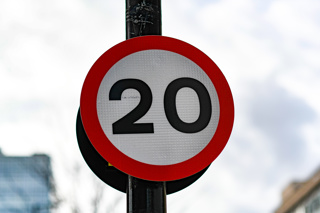Manufacturers have welcomed the Government’s announcement in the Budget to extend the tax appeal of sub-76g/km models for fleets.
The introduction of two new bands from 2015, which reverses a 2012 Budget decision to remove tax exemptions, will cut benefit-in-kind tax by hundreds of pounds a year.
However, ultra-low emission vehicles have not yet caught the imagination of the majority of fleets, despite the lure of Government incentives, such as the plug-in car grant which offers up to £5,000 off the price of vehicles up to 75g/km.
In 2012, 1,262 pure electric cars were sold, with the Nissan Leaf accounting for 55% of registrations. Range extended vehicles, such as the Vauxhall Ampera and Chevrolet Volt, which emit 27g/km, accounted for 522 registrations and plug-in hybrids, like the Toyota Prius at 49g/km, were responsible for 470 registrations.
Combined they accounted for 2,254 units out of a total new car market of 2,044,609 units last year, equating to a market share of just 0.1%.
The Society of Motor Manufacturers and Traders (SMMT) says changes announced in the 2012 Budget to the company car tax regime, including plans to remove the electric vehicle exemption in 2015, had an immediate impact on the market and unsettled demand.
But it’s now hoped that the introduction of two new BIK bands will help kick-start the market.
Transport minister Norman Baker said: “Sales of plug-in vehicles are picking up as people come to see the economic and environmental sense they make, and with further exciting new vehicles coming to the UK over the next few months from the world’s largest car manufacturers, we are confident there will be strong future growth.”
Renault is launching the Zoe, the latest in the French manufacturer’s four-strong 100% electric vehicle range, which comes in the wake of the Fluence ZE saloon, the Kangoo Van ZE and the urban runabout the Twizy.
Meanwhile, Mitsubishi will be launching the petrol plug-in Outlander later this year with emissions of 49g/km and Volvo’s 48g/km V60 plug-in hybrid has already seen its initial global quota of 1,000 cars snapped-up.
Selwyn Cooper, national corporate operations manager at Volvo, said: “Maintaining the rate at 5% for these vehicles in 2015/16 followed by a gradual increase to 7% the following tax year will continue to incentivise business users to choose such vehicles.”
Vauxhall launched the Ampera last year and James Taylor, Vauxhall’s fleet sales director, was similarly upbeat. He said: “Creating this ultra-low carbon band means BIK rates stay at their lowest for company car drivers looking to choose an Ampera and companies looking to add it to their company car choice list can do so with confidence now the Government’s ultra-low emission vehicle BIK strategy is confirmed until 2020.”
It’s that long -term view coupled with the avoidance of a massive hike in personal tax after April 2015 which Nissan’s corporate sales director Jon Pollock believes will persuade more company car drivers to choose an EV like the Leaf as their next company car.
He added: “This should increase EV sales, at the same time as helping bring down emission levels which is a priority both for companies meeting their corporate CSR objectives and for cities such as London to meet future EU emission targets.”
























Login to comment
Comments
No comments have been made yet.